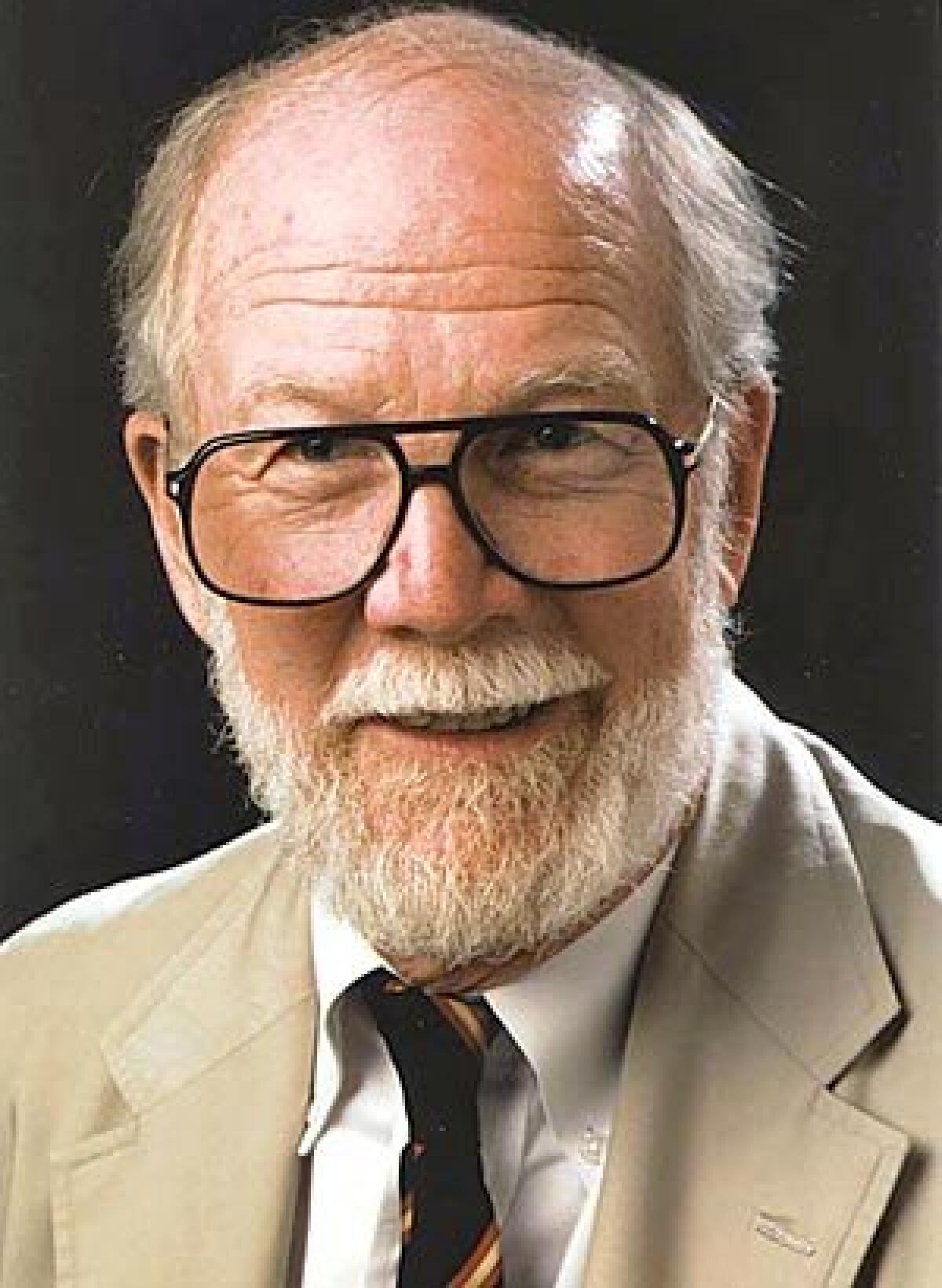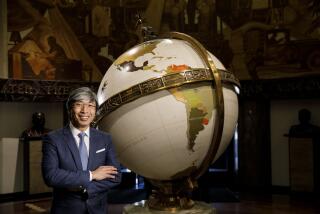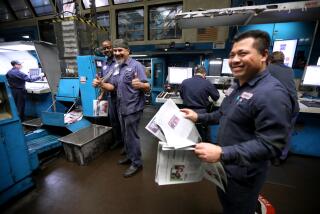Eric Malnic dies at 73; former Times reporter covered Watts riots, aviation

Eric Malnic, a former longtime Los Angeles Times staff writer who was part of the team that won The Times a Pulitzer Prize for its coverage of the 1965 Watts riots and later specialized in aviation stories, has died. He was 73.
Malnic, who underwent surgery for urinary tract cancer two years ago and suffered numerous complications and four more operations, died Tuesday night at his home in Altadena, said his wife, Martha.
During a five-decade career that began as a Times copy boy in 1958, Malnic filled a variety of posts: He was a beat reporter, an assistant Metro editor and a facile rewrite man who was often called on to take dispatches from reporters at the scenes of earthquakes, train wrecks and other disasters and blend them into coherent Page 1 stories.
He came up in the profession when the tools of the trade were typewriters and hot type and survived well into the computer age “without giving up his hard-nosed reporting instincts and deep, deep desire to dig into a story,” said Tom Paegel, a former Times night city editor who remembered Malnic as a gracious mentor.
Later in his career, Malnic became the paper’s main reporter on aviation disasters and airline safety, a specialty he honed by learning to fly and, at 53, obtaining a pilot’s license.
“Eric was the best aviation reporter in the country,” said Barry Schiff, an aviation safety consultant and retired airline captain. “He really wanted to dig into the facts, and to do that he felt he needed more than a cursory glance. He wanted to learn what flying was all about. He just had the most objective and determined approach to getting the story right.”
Malnic became a staff reporter in 1962 after a three-year stint in the Army Counter Intelligence Corps.
He later recalled that he was never shot at while serving in the Army, but he was shot at while covering the Watts riots.
On the third day of the riots, Malnic and Times photographer Cal Montney drove around a large area that had been cordoned off by the police, who had pulled out.
“We were told by the police if we went in, we were on our own,” said Malnic, who did the driving. “The secret of success was never to stop. We ran all the red lights. If you stopped, people threw rocks. The car picked up three bullet holes.”
One afternoon, Malnic sped off after a crowd of looters spotted them and took after their car. At one point, Malnic and Montney drove through a crowd that pulled back to let them through. By the time it was over, their car was full of dents and the windshield was cracked.
“There were those reporters who were willing to cover it, and those who were not,” said Malnic. “I couldn’t wait to get down there. You’re immortal when you’re 28. It didn’t occur to me to get scared until it was all over.”
In addition to being part of the staff that won the Pulitzer for local reporting for its coverage of the Watts riots, Malnic was a member of the Metro staff that won a Pulitzer for coverage of the 1994 Northridge earthquake.
In 1966, Malnic was cited for his “outstanding objectivity and excellence” by the Social Security Administration for his coverage of federal healthcare and health insurance programs. Singled out were his stories on the Medicare program.
He also won a number of writing awards from the Los Angeles Press Club.
Malnic’s competitive zeal was often the stuff of newsroom lore.
When a 6.5-magnitude earthquake struck the Central California town of Coalinga in 1983, reporters from scores of news organizations scrambled to reach the scene first. Malnic and colleague Cathleen Decker rode in separate helicopters but were stymied when the Federal Aviation Administration closed airspace over the area for miles around.
To Malnic, this was more an opportunity than a barrier.
“Eric touched down in Fresno,” Decker recalled, “and promptly paid off all the cabbies to drive around off the airport so that the other arriving reporters from TV, radio and newspapers were stuck and he had the time advantage.”
While specializing in aviation stories later in his career, Malnic covered an Alaska Airlines jet that plunged into the ocean off the Ventura County coast in 2000, killing all 88 people on board.
In a 2000 American Journalism Review story on The Times, writer William Prochnau described Malnic, then 62, this way: “Too old to chase fire engines, he chases airplanes instead. Malnic does crashes from Lockerbie to Peggy’s Cove. In the elite corps of reporters occupying that particular specialty, he is considered one of the best.”
In 1997, Malnic wrote a first-person account about qualifying to be a private pilot a decade earlier.
He wrote of the dangers of piloting his own plane, such as “the time when the calm of 9,500 feet was shattered by a controller’s radioed report that I had ‘traffic at 1 o’clock — a Boeing 727.’ ”
And he also described the delights: “Like my first night flight over Los Angeles, when the sky was clear and I could see for 100 miles and the city below was a carpet of sparkling gemstones.”
He was born Dec. 21, 1936, in Santa Barbara and later moved to Azusa, where his father was a citrus rancher. He attended Williams College in Williamstown, Mass., on a full academic scholarship and graduated in 1958 with a bachelor’s degree in English.
When Malnic retired from The Times in 2006, his farewell e-mail to his Metro colleagues was a brief -30-, the way journalists once signified the end of a story. He left the newsroom to a spontaneous standing ovation.
In addition to his wife, he is survived by two sons, John and Daniel; two stepchildren, Cornelia Cooley and Alexander Cooley; his sister, Gretl Mulder; and three grandchildren.
Instead of flowers, donations may be made to Hillsides, a comprehensive treatment center for abused and neglected children and their families in Pasadena. Details at (323) 255-9005.
A celebration of his life is pending.
More to Read
Start your day right
Sign up for Essential California for the L.A. Times biggest news, features and recommendations in your inbox six days a week.
You may occasionally receive promotional content from the Los Angeles Times.







